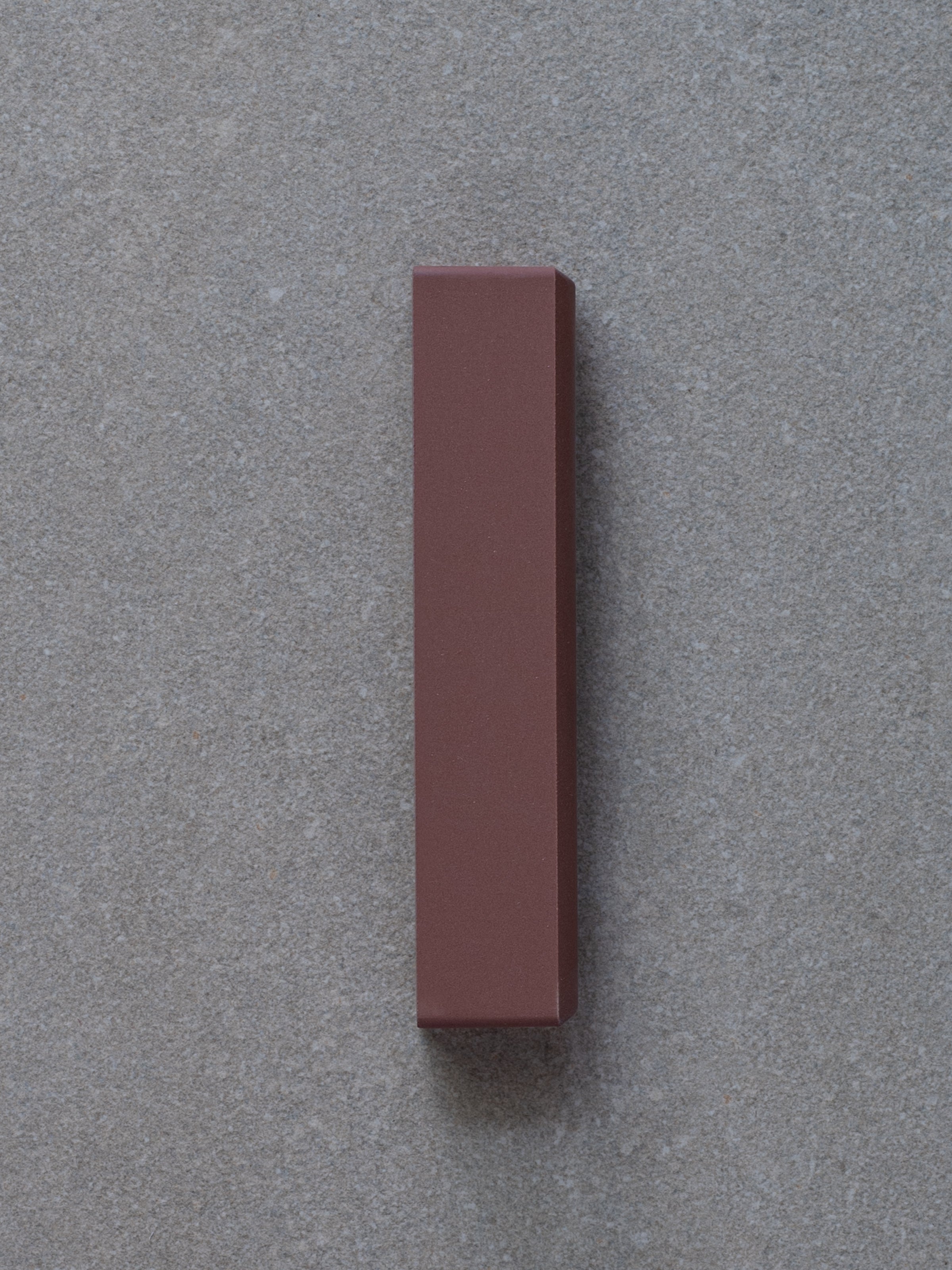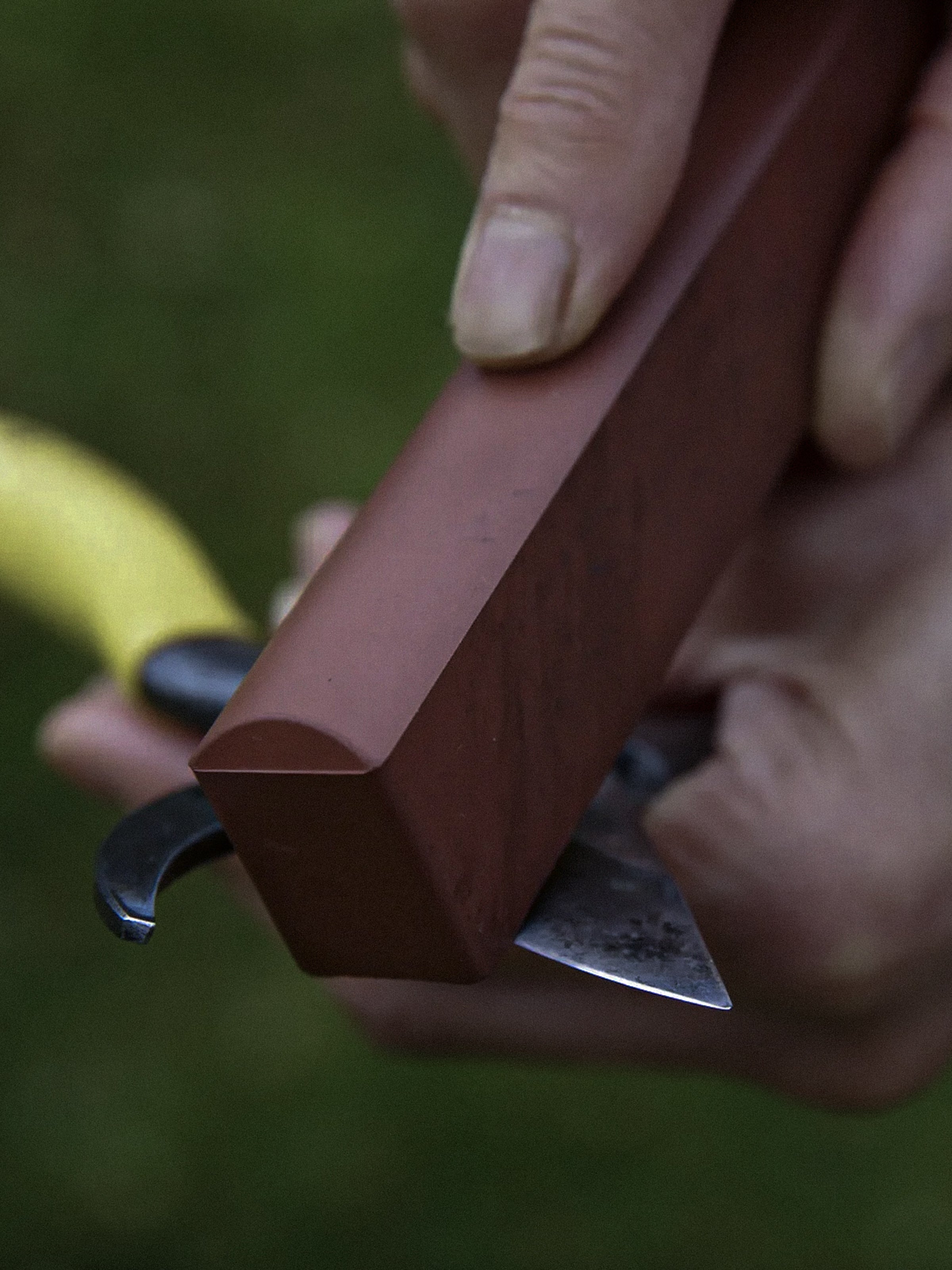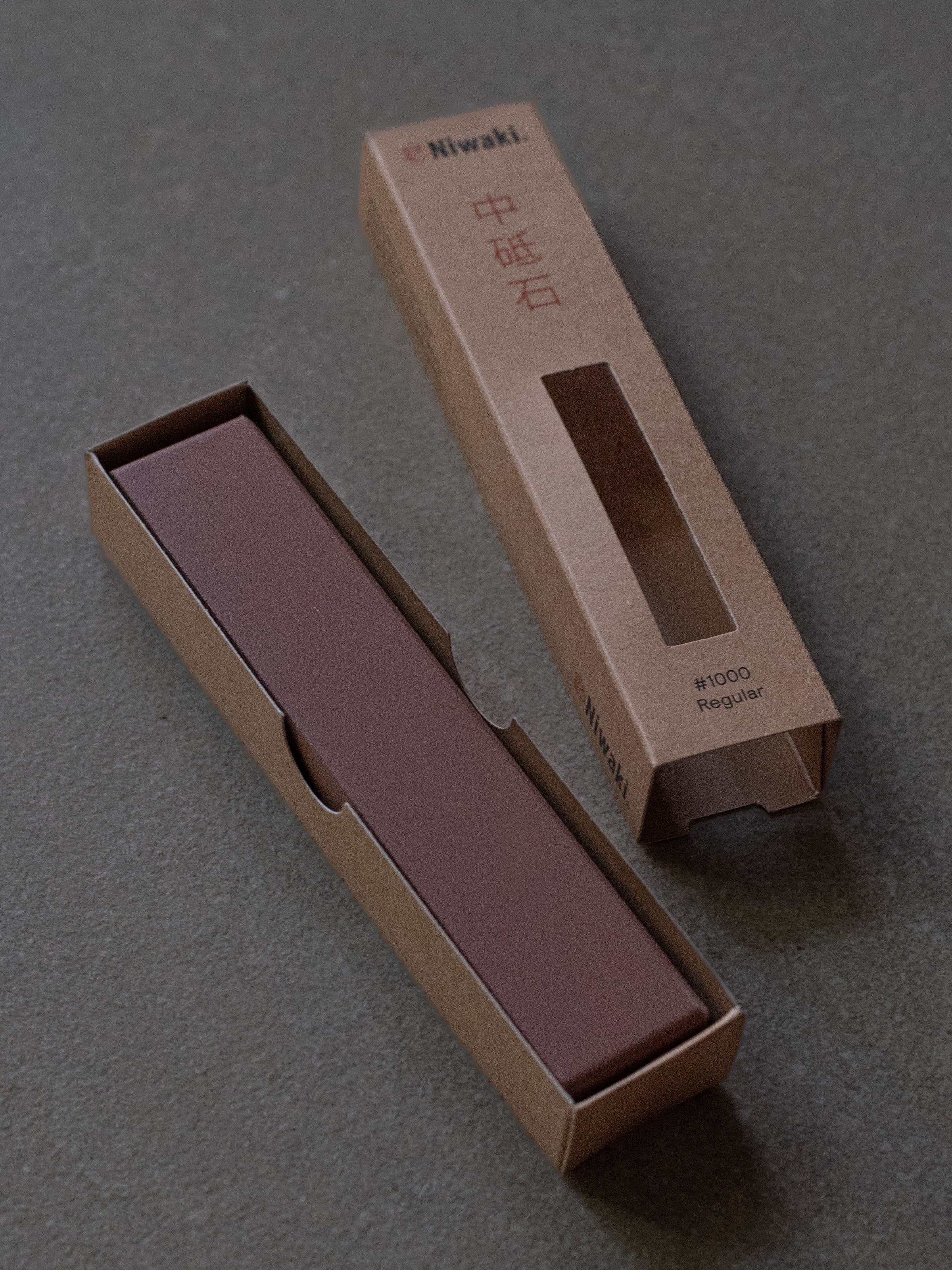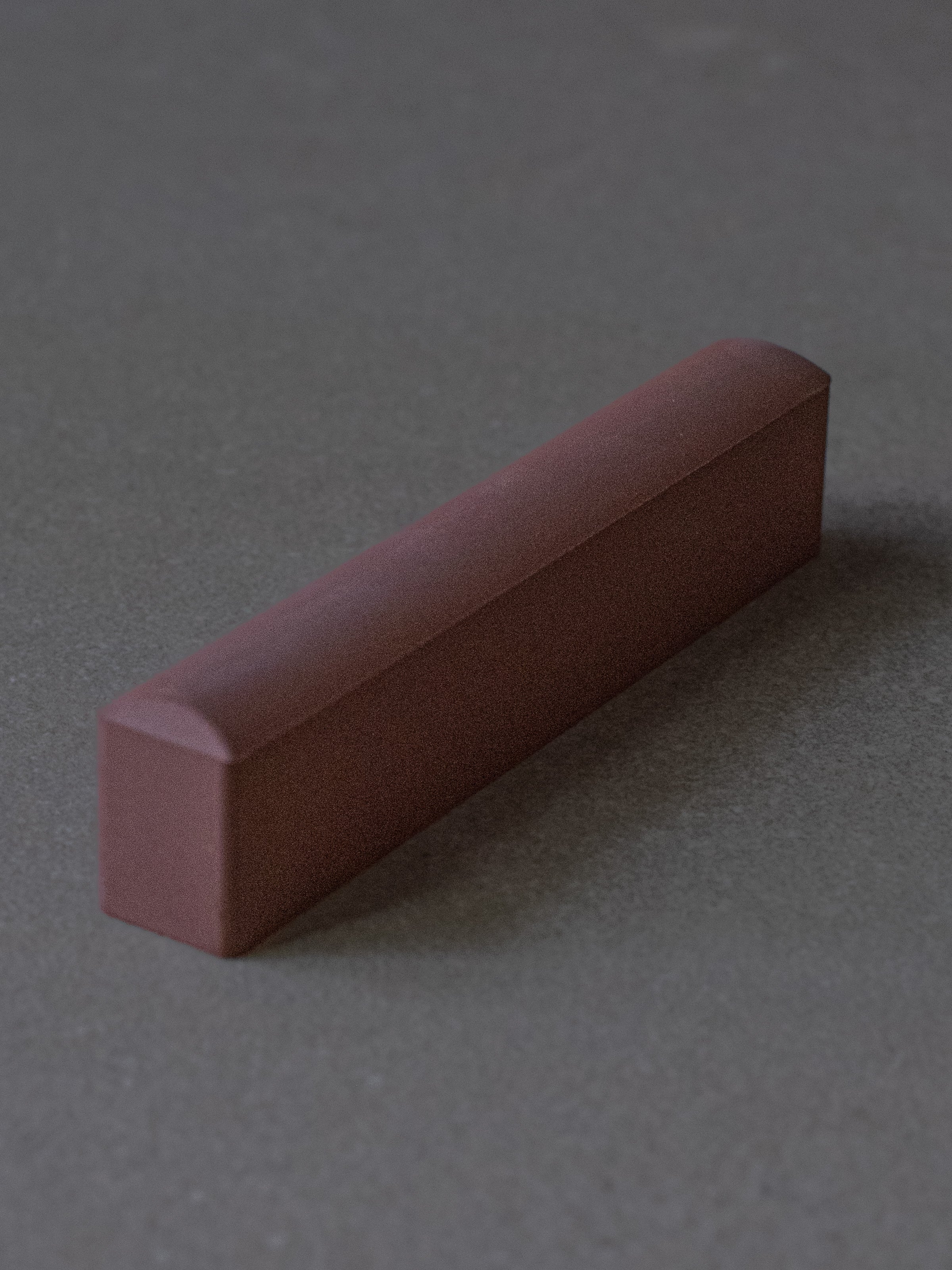
Shop more from Niwaki
Product Description
Fantastic sharpening stones, specially designed for secateurs but also great for shears, topiary clippers and other sharp stuff.
This #1000 size in fine and for regular sharpening - the most useful stone for regular sharpening: if you only get one stone and you tools are already in good condition, make it this one.
The bottom of each stone is slightly concave and designed in such a way that it fits the convex curve of the cutting blade perfectly on all our secateurs. This makes it easy to get the angle of attack correct, ensuring great sharpening results every time.
The flat face(s) of the stone are ideal for shears and topiary clippers and for removing the burr from reverse of the blade after you have used the concave face to sharpen secateurs.
They’re small enough to get into tight spots, so you can sharpen all the way along the blade, and come highly recommended by Japanese blacksmiths and our own master pruner, Jake Hobson.
Details
Measurements: 13.1 x 2 x 2.3cm / 136g
Made in Osaka, Japan.
Care
- Soak until the bubbles stop rising before use (c.3mins)
- Be careful not to drop them – they will crack
- Use the #1000 grit for a few minutes every week to keep your secateurs in top condition
Sharpening Niwaki Secateurs
The Niwaki Stones work for just about every edged blade: #1000: fine, for regular sharpening - the most useful stone for every day sharpening.
For Secateurs: NB. We strongly advise NOT taking your secateurs apart - they never go back together quite the same.
- Soak stones in water for a few minutes before use, and keep wet during use
- Use the concave edge of the stone, moving from the pivot towards the tip of the blade, following the curve as you go
- FOR STRAIGHT BLADED SHEARS use the flat side of the stone
- Then back again - back and forth along the whole length of the blade
- Use as much of the stone as possible, not just the top inch
- This is a gentle action - don’t use too much pressure
- Next, turn the secateurs over, and use the flat side of the stone to smooth the burr off the inside of the blade, going slightly over, creating a very fine bevel
- Use the convex edge of the stone to clean off the curved edge of the bypass
- Finally, clean and dry the secateurs, and wipe with Camellia Oil
Shipping
We Ship Worldwide.
Exact Shipping Costs are based off weight and destination which will be calculated at Checkout.
Complimentary Standard Shipping for orders over $150 within Australia with code: 'SHIPFREE' – excludes heavy, bulky, and oversized items.
All orders ship from Perth, W.A. Australia.
International customers (excluding the U.S.) please note that import duties, taxes, and charges may apply in your country. These charges are the buyer’s responsibility and not included in the item price or shipping cost. If unsure please check with your country’s customs office prior to purchase.
Gift Wrapping Service
To have your item gift wrapped, click here and add it to your cart.
About Mujo Store
A curated selection of handcrafted Japanese homeware & everyday objects for slow living.
Mujo Store is an online shop based in Perth, Australia. Find kitchenware, ceramics, cookware, Japanese incense, and more. Sustainable materials, tradition, minimal & functional design, and small-scale production.
Niwaki was established in 1997, and means garden tree. Japanese gardens are landscapes, microcosms of nature, and the trees are all shaped to fit into those landscapes. Niwaki evolved from founder Jake Hobson's discovery of Japanese gardens through his time living in Japan. Their range of beautiful hand forged tools and useful objects are carefully handmade by Japanese blacksmiths.
Niwaki's Care Guide:
"Most of our sharp tools are made from carbon steel - this means they may, through regular use, stain (and eventually rust) and gradually lose their edge. Caring for them involves three things…"
1. Correct Use:
- Japanese steel is hard and sharp, and can be more brittle than some people are used to - it will chip if abused
- Do not cut wire, metal, stone, plastic or any other hard material (even bamboo fibres and some very hard woods, especially knots and burrs, can damage steel edges)
- Do not twist or apply uneven pressure
- Cut diagonally across branches (not straight across) so you cut along the fibres
- Pay attention to our maximum cut dimensions, and don’t overdo it (shears are not loppers)
- Use the base of the blades, not the tips, for heavier cuts
2. Keeping Them Clean:
- Remove leaf resin, rust and gunk with a Crean Mate and water
- Dry, wipe over with Camellia oil and store in a dry place




